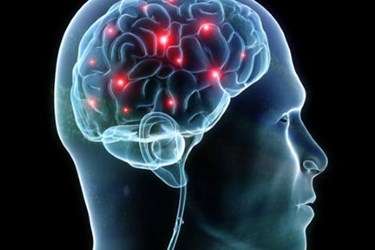GE, Banyan To Advise FDA On TBI Research

Biomarker research and big data analytics have the potential to transform the way doctors diagnose and treat traumatic brain injuries (TBI), also known as concussions. The U.S. Food and Drug Administration (FDA) has announced that it will host a public workshop where experts in TBI research — including industry names GE Healthcare and Banyan Laboratories — will present the latest advances in TBI biomarker research and advise FDA on the technology’s specific regulatory challenges.
Emergency technicians and specialists currently rely on subjective physical examinations of a patient’s vision, balance, hearing, and memory to correctly diagnose TBI, and may follow up with computerized tomography (CT) scans or magnetic resonance imaging (MRI) to confirm cranial bleeding. This process — which is the standard of care for TBI — is time intensive, expensive, and prone to human error.
Recent research suggests that a more reliable and cost-effective TBI diagnostic could be developed if scientists identified blood-based or neuroimage-based biomarkers of the condition. The FDA’s public workshop, “Advancing the Development of Biomarkers in Traumatic Brain Injury,” aims to “examine potential biomarker development methodologies, and establish strategies for data standardization, sharing and analysis of big data sets for TBI.”
The FDA has invited researchers on the forefront of biomarker research, including scientists from the U.S. Army, the University of California, San Francisco (UCSF), Baylor College, and the Universities of Florida and Colorado. Luca Marinelli, program director of Healthcare Commercial Partnerships for GE, and Ronald Hayes, founder and president of Banyan Biomarkers, are the only two industry representatives presenting at the workshop.
In 2013, GE and the National Football League (NFL) launched a four-year initiative to accelerate research for TBI, which is of critical concern among athletes, reported the New York Times. The project was initially aimed at finding imaging solutions, but it has since expanded to include bio-fluid biomarker research. In 2014, the NFL and GE launched the Head Health Challenge, which pledged to provide up to $20 million in funding to innovative TBI solutions. One of the six winners of Head Health Challenge I was Banyan Laboratories.
In 2010, the U.S. Department of Defense awarded Banyan with a $26.3 million contract to fund its research of a TBI blood test and, last November, Banyan researchers published positive results of a small clinical study in the Journal of Neurotrauma. Recently, Banyan partnered with Royal Philips to turn its TBI blood test into a point-of-care diagnostic tool.
Related, GE Healthcare and CorTechs Labs recently announced their collaboration and intent to connect NeuroQuant — computer software that can analyze MRI imaging and provide quantitative data reports — into GE’s Health Cloud.
The FDA’s workshop will held in Silver Spring, Maryland, and will be made available to the public via webcast. A link to the proceedings will be published on Feb. 25, 2016.
“By convening the relevant stakeholders, the goal is to obtain input on the scientific, clinical, patient and regulatory considerations associated with TBI biomarker development to improve diagnosis and clinical utility for TBI,” said FDA in its announcement.
